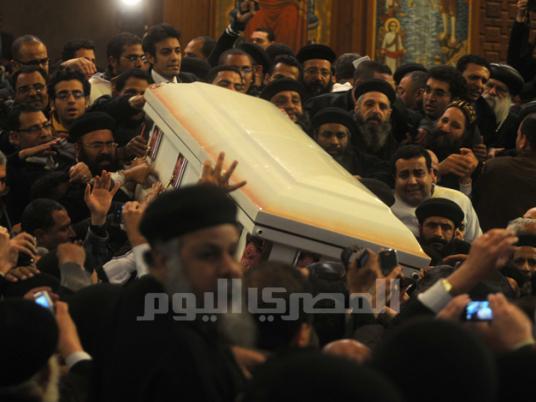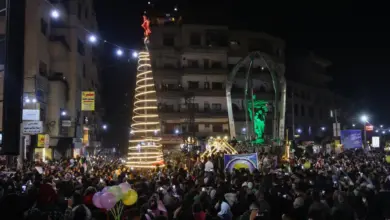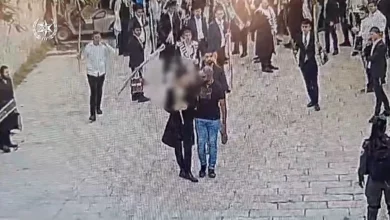
The death of Pope Shenouda III leaves behind a trail of grief as well as many fears and thorny issues.
National Justice Committee member Amir Ramzy said, “The serious problems are represented in a number of issues, including the unified personal status law and the unified law on the construction of places of worship, especially since until now the state has provided the Copts with nothing but promises instead of passing the law.”
Ramzy also mentioned the issues of “criminalizing discrimination, care for the poor and social services.”
Michael Mounir, a Coptic Christian political leader and president of the Hayat Party, said the main problem and the biggest challenge was in the new pope’s position on political action, especially since prior to the revolution the state only dealt with the Coptic pope, but after the revolution many political movements appeared on the scene.
“The situation has become more difficult following the ascension of Islamist political parties to power and the Islamist groups’ desire to take control over the constitution and potentially restrict religious freedom by applying Sharia,” he said.
“We must ensure adequate political representation for [Copts] in all state institutions as well as dealing with Copts through laws that directly represent them, such as personal status laws and the places of worship law,” said Ramzy, the coordinator of the Copts Without Limitations Movement.
“A moderate law must be issued rather than adopting the Sharia. The pope has the difficult task of facing the state, and he must seek the assistance of the political movements.”
Andrews Aweidah, member of the Maspero Youth Union’s Executive Office said, “The new pope must preserve the rights of Christians in the new constitution.”
Coptic activist John Talaat said the new pope must have a political role in addition to his religious role in order to deal with the many years of the Egyptian regime’s exclusionary methods against Copts.
“There is the issue of the situation of the Copts themselves, as among them there are broad sectors, especially in the post-revolution phase, that do not wish to come under the church’s banner as in the past and who wish to practice their political rights through revolutionary parties, movements and coalitions,” said researcher and political writer Ammar Ali Hassan.
“Therefore the church’s authority and grip over them has decreased and the coming pope will face a problem in dealing with this trend.”
Writer and Novelist Joseph al-Qaeid said, “Pope Shenouda passed away at a decisive moment in the history of this country and the Christians, as well in the history of Muslim-Christian relations.”
“The first problem we will face is who will come after the Pope?” said Qaeid.
Writer Sakina Fouad said the most important problem left behind after Shenouda’s death is issue of sectarianism, which she said she fears will escalate.
Translated from Al-Masry Al-Youm




